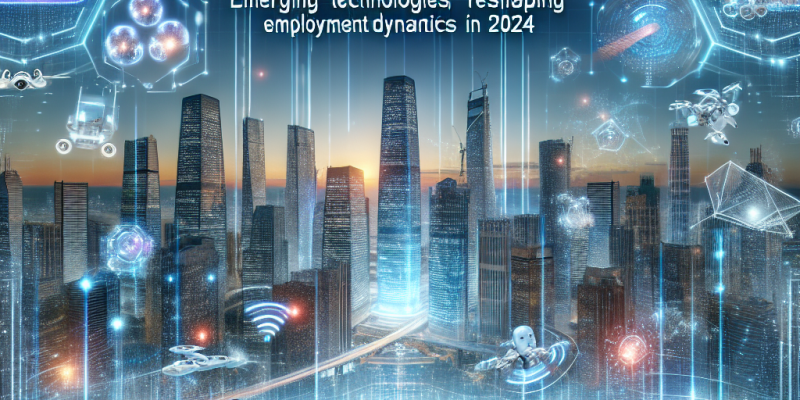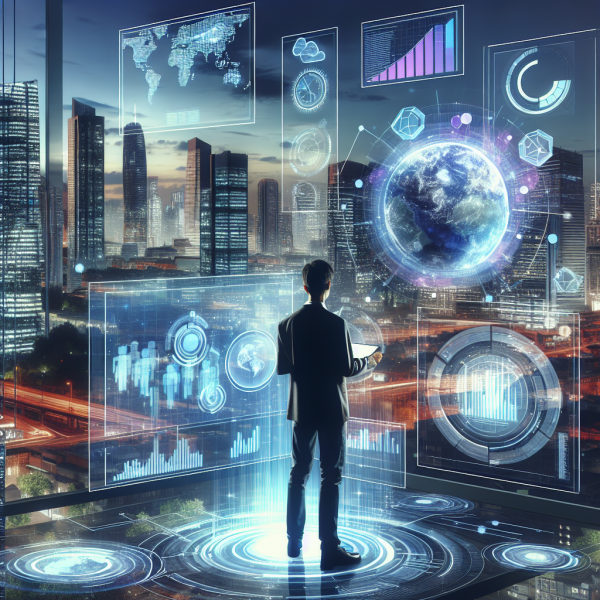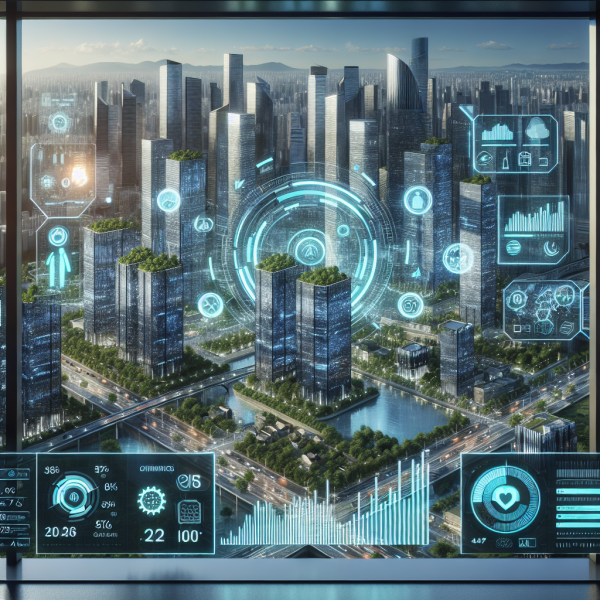The Future of Work: Emerging Technologies Reshaping Employment Dynamics in 2024

The Future of Work: Emerging Technologies Reshaping Employment Dynamics in 2024
As we navigate through 2024, the landscape of work continues to evolve at an unprecedented pace. The convergence of emerging technologies is not only reshaping traditional employment structures but also redefining the very nature of work itself. From artificial intelligence and automation to the rise of remote work and the gig economy, several key trends are emerging that promise to revolutionize how we engage with our jobs, our workplaces, and each other.
1. AI and Automation: Redefining Job Roles
Artificial intelligence (AI) has swiftly moved from a futuristic concept to an everyday reality, and its impact on the workforce is profound. By 2024, AI tools are now capable of performing tasks once thought to be uniquely human. This shift is prompting organizations to rethink job descriptions and skill requirements. While some roles are being rendered obsolete, new positions are emerging that require a blend of human creativity and AI efficiency.
For instance, in sectors like healthcare, AI-powered diagnostic tools assist doctors in interpreting medical data, allowing them more time for patient interaction. In marketing, predictive analytics powered by AI enable businesses to tailor campaigns more effectively. As such, human employees are being repositioned to synergize with technology, focusing on complex problem-solving, emotional intelligence, and communication skills.
2. Remote Work: A Permanent Shift
The COVID-19 pandemic accelerated the adoption of remote work, and by 2024, it has firmly established itself as a standard practice across many industries. Companies are increasingly embracing hybrid work models, allowing employees to split their time between home and the office. This flexibility has transformed the employer-employee relationship, emphasizing trust and output rather than time spent in a physical location.
However, this shift also presents distinct challenges. Organizations are investing in technologies that facilitate collaboration and communication, such as advanced video conferencing tools and collaborative project management platforms. Moreover, the need for robust cybersecurity measures has escalated, as businesses recognize the vulnerabilities that come with remote operations.
3. The Gig Economy: Redefining Employment Norms
The gig economy continues to gain momentum in 2024, with more individuals opting for freelance work and short-term contracts. Platforms like Upwork, Fiverr, and TaskRabbit are revolutionizing how people seek employment and how companies hire talent. This trend is driven largely by a desire for flexibility and autonomy, particularly among younger generations.
However, the gig economy also raises questions about job security and benefits. As more workers engage in freelance gigs, there is a growing call for legislation to ensure fair compensation, healthcare benefits, and retirement plans for gig workers. Companies are anticipated to adapt to this new workforce reality, developing hybrid models that blend traditional employment with freelance arrangements.
4. Upskilling and Continuous Learning: A Necessity
As technological advancements accelerate, the need for continuous learning has never been more critical. Organizations are investing heavily in upskilling programs to ensure their employees remain competitive in an evolving job market. By 2024, many companies have integrated AI-driven personalized learning experiences that cater to individual employee needs, ensuring that teams are prepared to harness emerging technologies effectively.
Moreover, educational institutions are partnering with businesses to create curricula that focus on the skills of the future, such as data literacy, digital marketing, and cybersecurity. Lifelong learning is no longer an option; it is a necessity for employees to adapt and thrive in this new work landscape.
5. Ethical Considerations and Employee Well-Being
As technology becomes increasingly integrated into the workplace, ethical considerations around its use are gaining prominence. Issues such as data privacy, surveillance in remote work environments, and the potential for bias in AI systems are at the forefront of discussions regarding employee well-being. Companies are being urged to adopt transparent practices that prioritize employee rights and foster inclusive environments.
Moreover, the mental health and well-being of employees are receiving renewed attention. With the blurring lines between work and personal life in remote settings, organizations are investing in wellness programs that support emotional and physical health. A holistic approach to employee well-being is seen as essential for maintaining productivity and job satisfaction in this dynamic work environment.
Conclusion
The future of work in 2024 is characterized by a profound transformation driven by emerging technologies. As organizations adapt to these changes, they face numerous challenges and opportunities. By leveraging AI, embracing remote work, acknowledging the rise of the gig economy, committing to continuous learning, and prioritizing ethical considerations and employee well-being, businesses can create a workforce that is not only more resilient but also more empowered.
As we look ahead, the ability to navigate this evolving landscape will determine not just individual success but also the overall prosperity of organizations and economies in the years to come. The future of work is not merely a destination; it is a continuous journey of adaptation and innovation.













